At the Circus

Brief Synopsis
Cast & Crew
Edward Buzzell
Groucho Marx
Chico Marx
Harpo Marx
Kenny Baker
Florence Rice
Film Details
Technical Specs

Synopsis
Having foresaken a life of luxury in the mansions of Newport for the sawdust of the Wilson Wonder Circus, Jeff Wilson is now in danger of losing his beloved bigtop unless he can pay the $10,000 that he owes his partner, John Carter. Believing that an attorney can solve any problem, Antonio, a circus employee, sends for his old friend, attorney J. Cheever Loophole. Meanwhile, Carter, who does not want to reliquish his share of the circus, conspires with the strongman, Goliath, to rob the unsuspecting Jeff. After Goliath steals the money, Antonio, Loophole and Antonio's friend Punchy search for incriminating evidence, but Antonio bungles the investigation. Hence, when Loophole discovers that Jeff has a rich aunt, Suzanah Dukesbury, living in Newport, he decides to extract the money from her. Arriving on the eve of Mrs. Dukesbury's social extravaganza, Loophole is mistaken by the grand dame as a representative of the distinguished French conductor, Jardinet, who is to play at the party. Taking advantage of the situation, Loophole wheedles a $10,000 fee from the wealthy widow and telephones Jeff to bring the circus to Newport for a performance. As Mrs. Dukesbury awaits the arrival of the prestigious symphony, she is appalled to hear not the strings of Beethoven but the calliope of the circus. Carter then attempts to sabotage the circus one more time, but fails, and the show goes on.

Director
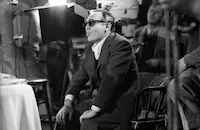
Edward Buzzell
Cast

Groucho Marx

Chico Marx

Harpo Marx

Kenny Baker
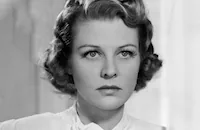
Florence Rice
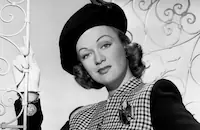
Eve Arden

Margaret Dumont
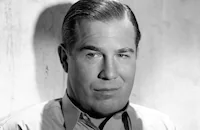
Nat Pendleton

Fritz Feld

James Burke
Jerry Marenghi
Barnett Parker
Charles Gemora
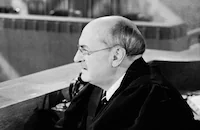
Granville Bates

Irving Bacon
John Dilson
Herbert Ashley
Irene Colman
Barlowe Borland
Emory Parnell
Henry Sylvester
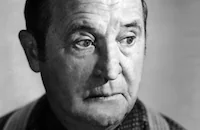
Frank Orth

Willie Best
Forbes Murray
Harry Hayden
Murdock Macquarrie
Sidney Miller
Mickey Daniels
George Bookasta
Eugene Jackson

Byron Foulger
Mariska Aldrich
Matt Mchugh
Buck Mack
Paul Borne
John Binns
Henry Blair
Betsy Gay
Patricia Segar
Robert Winkler
Freddie Walburn
Crew
Harold Arlen
George Bassman
Irving Brecher
A. J. Cantu
Bobby Connolly
S. L. Cronin
Murray Cutter
Ken Darby
Cedric Gibbons
E. Y. Harburg
Evelyn Jurs
Mervyn Leroy
Anna Merkel
Stan Rogers
Sandy Roth
Douglas Shearer
Leonard M. Smith
Charles Stallings
William H. Terhune
Dolly Tree
Valles
Franz Waxman
Edwin B. Willis

Photo Collections
Film Details
Technical Specs

Articles
At the Circus
Like most Marx Brothers films the plot is incidental to their wild shenanigans. In the film, the Marxes try to retrieve stolen money and save a circus owned by Kenny Baker, a popular singer of the time that MGM was trying to turn into a movie star (and who had earlier appeared in The King and the Chorus Girl (1937), a film Groucho co-wrote but didn't appear in). Filling out the cast are Nat Pendleton, Eve Arden, Florence Rice and of course the perennial, good-natured target of Groucho's quips - Margaret Dumont. A few songs round out the movie, most notably the unforgettable "Lydia the Tattooed Lady,'' performed by Groucho.
Director Mervyn LeRoy (I Am a Fugitive from a Chain Gang (1932) served as producer on the project and he turned to Irving Brecher for a script. Brecher was the first solo writer on a Marx Brothers film but he had an appropriate background as one of radio's best gagmen complete with a sense of humor that earned him Groucho's respect. (There's a story that Brecher got his first radio job by placing an ad in Variety saying he supplied "Jokes so bad even Milton Berle wouldn't steal them" which prompted Berle to hire the newcomer.) This was also Brecher's first screenplay though he did a bit of uncredited work on The Wizard of Oz (1939). MGM decided against allowing the Marxes to test any of the material out on live audiences, something they'd done on both previous MGM films and most of their earlier ones. MGM also employed Buster Keaton as a gag writer on the film. Unfortunately, the jokes he devised for Harpo were ideal for "The Great Stone Face" but didn't really fit the Harpo character. The rest of his contributions failed to amuse Groucho and apparently none of Keaton's material ended up in the completed film. Some sources say Ben Hecht contributed uncredited material as well.
To direct, MGM brought in Edward Buzzell, another New York vaudeville veteran like the Marxes. He began his career directing comedy shorts before moving on to low-budget features starring the likes of Burns & Allen, Ann Sothern and Lew Ayres. Buzzell had his own style that sometimes created friction with the Marxes. One legendary exchange has him saying, "Now, let's really act this scene." This prompted Groucho to reply, "The Marx Brothers will do anything but act. If you want dramatics, use our stand-ins."
The busy production of At the Circus was a round-the-clock operation; when Buzzell and the Marxes left the set, another crew would come in and film extra material late into the night. Naturally, there were some obstacles encountered along the way but one in particular stood out. The script called for a gorilla for one scene but it turned out that trained gorillas have to be booked months and months in advance. Their alternate plan was to simply hire a man in an ape costume but this soon created other difficulties when the performer couldn't breathe inside the hair suit and passed out. After he punched some breathing holes in it, the costume owner showed up and angrily confiscated it, prompting both a replacement gorilla costume and performer. In another incident, Harpo was required to fill his mouth full of feathers for a scene. But he accidentally swallowed them when Chico hit him on the back. Well, nobody ever said life with the Marx Brothers would be dull.
Producer: Mervyn LeRoy
Director: Edward Buzzell
Screenplay: Irving Brecher, Ben Hecht (undredited)
Art Direction: Cedric Gibbons
Cinematography: Leonard Smith
Costume Design: Dolly Tree, Valles
Film Editing: William H. Terhune
Original Music: Harold Arlen, Franz Waxman
Cast: Groucho Marx (J. Cheever Loophole), Chico Marx (Antonio Pirelli), Harpo Marx (Punchy), Margaret Dumont (Mrs. Dukesbury), Florence Rice (Julie Randall), Kenny Baker (Jeff Wilson).
BW-87m. Closed captioning.
by Lang Thompson

At the Circus
The Marx Brothers Collection (Review) - The Marx Brothers Collection on DVD
What does unite these seven pictures is that they were produced by MGM. Duck Soup (1933), while regarded by many as the best Marx Brothers movie of them all (or at least tied for that distinction with A Night at the Opera), was a notable flop upon release with the public and critics alike, and Paramount decided to throw in the towel.
Chico (pronounced "Chicko," not "Cheeko") Marx, who was very social in Hollywood, played a weekly bridge game with Irving Thalberg, and he told the legendary head of MGM production that the Brothers had been dropped by Paramount. Thalberg agreed to take them on with the provision that they allow him to reshape the structures of their films, for he felt that their Paramount pictures had been too zany and silly, and not focused enough narratively. Having the Brothers create comic mischief around another story altogether involving other major actors, Thalberg decided, would allow the audience to become more emotionally invested. The three Brothers agreed, and the first two films that resulted, A Night at the Opera and A Day at the Races, were smash hits and instant comedy classics. (Zeppo, the "4th" Marx Brother, left the screen after Duck Soup to become the manager for the other three.)
Another big reason for this success was that Thalberg allowed the Marx Brothers to test the material on the road in traveling stage shows. Their first two Paramount films had been based on stage hits, and the team therefore knew from all those live performances what the perfect timing was for each joke and bit of business. Testing the new film's major sequences in the same way seemed like a wise idea, and the Marx Brothers ended up tweaking gags for every performance until they had honed them to perfection. They even timed pauses and audience laughter with a stopwatch.
Ironically, the most famous scene in the movie (and one of the most famous comedy scenes of all time, for that matter) didn't work on stage and was almost cut out entirely. This was the stateroom scene in which Groucho's room fills with an impossible number of people and things, leading to a brilliant payoff. (One exchange: a manicurist shows up and asks Groucho, "Do you want your nails long or short?" "You better make them short. It's getting kind of crowded in here.") Of course, the conceit of the scene is cinematic and difficult to convey on a stage. Thalberg astutely realized this and kept the scene in.
Another interesting tidbit is that the movie was trimmed by three minutes for a 1940s rerelease. The offending material was all the references to Italy, including an opening musical sequence that sets the stage in Rome. During WWII, the studio did not want to portray Italy in a positive light. Unfortunately, the trims were not saved, and the edited version is the one that has been around ever since.
With the success of A Night at the Opera, Thalberg immediately announced two more films and began work on A Day at the Races. It had the same kind of plot as Opera, many of the same supporting players, and it did equally well. (Horse doctor Groucho gives a horse a pill and says, "Take one of these every half mile and call me if there's any change.") Groucho, in fact, thought these two films were the Marx Brothers' best. Both were directed by Sam Wood, with whom Groucho had frequent run-ins. After one argument, Wood sighed, "You can't make an actor out of clay," to which Groucho replied, "Or a director out of Wood."
Unfortunately, Thalberg died during production of pneumonia, at age 37, and suddenly the Marx Brothers' driving force was gone. Louis B. Mayer took over supervision of the series but never gave the Marx Brothers the same level of respect and care that Thalberg had given them. Their next films were essentially B pictures, although they had some notable guest stars like Lucille Ball, Ann Miller, and Tony Martin. They all have their moments, especially A Night in Casablanca, but for the most part they lack the luster and magic of the first two MGM films.
Several of them also feature Margaret Dumont, in the role she was born to play, as the object of Groucho's antics. She really was in every way a member of the team, having performed with the Brothers since their Broadway days before their first movie.
Much more information is supplied by Leonard Maltin on his excellent commentary track for A Night at the Opera. The Day at the Races DVD includes commentary from Glenn Mitchell but it is comparatively sporadic and rather dry. Other extras in the 5-disc set include 4 very amusing trailers, 9 live-action shorts, 8 cartoons, 2 radio promos, 2 audio outtakes (including Tony Martin's nice rendition of "Where There's Music" from The Big Store), and a clip of Groucho's 1961 appearance on a television talk show. There are also 2 new documentaries on the Marx Brothers which feature interviews with Larry Gelbart, Carl Reiner, and TCM's own Robert Osbourne, among others. In short, there is enough information here to satisfy the vast majority of fans, and it is presented in attractively packaged cases and nicely-designed menus. The print quality is quite good throughout.
Since these pictures were literally and painstakingly designed for large audiences and the laughs that would come from them, they do lose something when viewed alone in a living room, where the laughter between gags won't last as long as with a big audience. They're still funny, but the effect is a tad diminished. So gather a group around a large television, make some popcorn, turn off the lights, and let these movies work the way they were meant to.
For more information about The Marx Brothers Collection, visit Warner Video. To order The Marx Brothers Collection, go to TCM Shopping.
by Jeremy Arnold
The Marx Brothers Collection (Review) - The Marx Brothers Collection on DVD
Quotes
You know what I say. Whenever you got business trouble the best thing to do is to get a lawyer. Then you got more trouble, but at least you got a lawyer.- Antonio Pirelli
I've waited so long to find someone like you.- Peerless Pauline
Oh, someone *like* me, I'm not good enough for you, eh?- J. Cheever Loophole
But it's so easy. The bottom of your shoe creates a suction that holds you up in the ceiling.- Peerless Pauline
No, no, I'd rather not. I have an agreement with the houseflies. The flies don't practice law and I don't walk on the ceiling.- J. Cheever Loophole
I bet your father spent the first year of your life throwing rocks at the stork.- J. Cheever Loophole
Trivia
Groucho sings "Lydia the Encyclopedia", a bowdlerized version of "Lydia, the Tattooed Lady".
Notes
The working titles of this picture were The Marx Brothers at the Circus and Day at the Circus. News items in Hollywood Reporter note that Mervyn LeRoy hired magician A. J. Cantu, circus performer Anna Merkel and former circus manager S. L. Cronin as technical aides. 130 circus performers from the Hagenbeck-Wallace Circus appeared in the circus sequences of this film.















